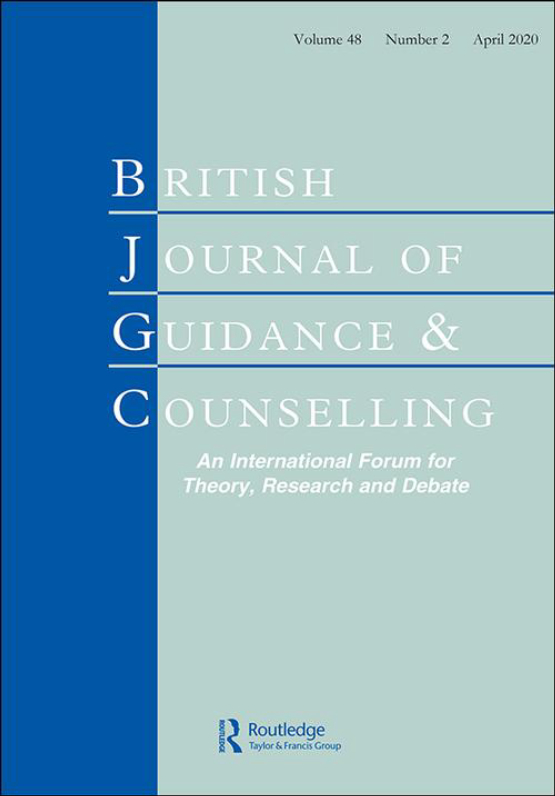Submit a Manuscript to the Journal
British Journal of Guidance & Counselling
For a Special Issue on
Calling, careers, and career counselling
Abstract deadline
31 May 2024
Manuscript deadline
31 July 2024

Special Issue Editor(s)
Annamaria Di Fabio,
University of Florence
[email protected]
Maureen E. Kenny,
Boston College
[email protected]
Bryan Dik,
Colorado State University
[email protected]
Calling, careers, and career counselling
The construct of work as a calling recognizes that some people work not only for money, rewards, promotion or success, but for a deeper sense of meaning. Scholars differ on its precise definition, but a calling “usually refers to a sense of purpose that leads a person toward a personally fulfilling and socially significant engagement with work, sometimes with reference to a spiritual or religious perspective, sometimes to a sense of passion, and sometimes to altruistic values” (Dik, Steger, & Autin, 2020, p. 238). Research has consistently demonstrated that many people perceive a calling (presence), whereas others may not feel a sense of calling in the present moment but are actively looking for it (search). Research also demonstrates that work as calling is associated with well-being for both individuals and organizations (Duffy et al., 2018). Moreover, calling is associated with surprisingly diverse career-related outcomes, showing mostly positive effects but also, in some circumstances, aspects of vulnerability (Bunderson & Thompson, 2009; Dobrow & Tosti-Kharas, 2012; Duffy et al., 2011). For this reason, the conditions and mechanisms that underly the relationship of calling to career-related outcomes deserve more in-depth study (Lysova et al., 2019).
Research also has distinguished between perceiving a calling and living a calling (Ahn et al., 2017), revealing that the links between perceiving a calling and various positive criterion variables are stronger when people have taken steps to live out their callings within a specific job (Duffy et al., 2018). The potential value of calling to work identity has also been identified (Reed et al., 2022), along with the need to develop and test diverse ways to foster a sense of calling within counseling practice. Research is also needed to examine opportunities to integrate calling more centrally within the field of career counseling, with a focus on the promotion of decent and healthy lives (Kenny & Di Fabio, in press; Di Fabio et al., 2022).
Recognizing the potential benefits of interdisciplinary dialogue to enrich theory and practice on calling (Lysova et al., 2019), this Special Issue aims at advancing the knowledge base with a specific focus on calling, careers, and career counseling interventions. We welcome theoretical and/or empirical contributions that broaden and deepen knowledge on these themes, while also encouraging constructive dialogue among vocational psychologists, industrial and organizational psychologists, management scholars, school psychologists, scholars from other disciplines, and a diverse array of practitioners, thus promoting a wide trans-disciplinary perspective.
Looking to Publish your Research?
Find out how to publish your research open access with Taylor & Francis Group.
Choose open accessSubmission Instructions
Please send your abstracts to Annamaria Di Fabio at [email protected]
When submitting your full paper to submission portal, please select "Special Issue: Calling, careers, and career counselling"